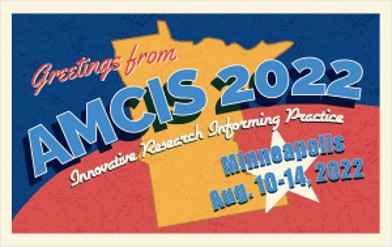SIG ED - IS in Education, IS Curriculum, Education and Teaching Cases
Loading...
Paper Type
Complete
Paper Number
1537
Description
Work-readiness is becoming a strategic priority for Australian higher education institutions (HEIs), with a shift from conventional teaching strategies towards experiential teaching techniques to boost students' learning experiences. One of these techniques is to employ simulation games to give students a risk-free, real-world reproduction of the soft and hard skills required by the information systems (IS) business. This exploratory research examined instructors’ perceptions of the impact of simulation games on the work-readiness of information systems students. We conducted semi-structured interviews with instructors who run ERPsim game laboratories in Australian HEIs. The Work Readiness Integrated Competency Model (Prikshat et al., 2019a) was used to map the three kinds of learning outcomes resulting from these analyses: skills, knowledge, and attitudes. The mapping revealed that simulation games have the potential to foster the development of certain skills and attitudes required by the IS industry.
Recommended Citation
Faisal, Nadia; Chadhar, Mehmood; Stranieri, Andrew; and Gorris-Hunter, Anitra, "Effects of Simulation Games on IS students’ Work-readiness: Instructors’ Perspectives" (2022). AMCIS 2022 Proceedings. 12.
https://aisel.aisnet.org/amcis2022/sig_ed/sig_ed/12
Effects of Simulation Games on IS students’ Work-readiness: Instructors’ Perspectives
Work-readiness is becoming a strategic priority for Australian higher education institutions (HEIs), with a shift from conventional teaching strategies towards experiential teaching techniques to boost students' learning experiences. One of these techniques is to employ simulation games to give students a risk-free, real-world reproduction of the soft and hard skills required by the information systems (IS) business. This exploratory research examined instructors’ perceptions of the impact of simulation games on the work-readiness of information systems students. We conducted semi-structured interviews with instructors who run ERPsim game laboratories in Australian HEIs. The Work Readiness Integrated Competency Model (Prikshat et al., 2019a) was used to map the three kinds of learning outcomes resulting from these analyses: skills, knowledge, and attitudes. The mapping revealed that simulation games have the potential to foster the development of certain skills and attitudes required by the IS industry.
When commenting on articles, please be friendly, welcoming, respectful and abide by the AIS eLibrary Discussion Thread Code of Conduct posted here.



Comments
SIG ED